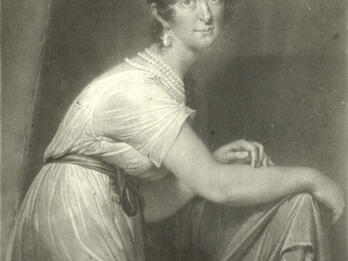Solomon Maimon: An Autobiography
I was sent to school at Iwenez, about fifteen miles from our abode, and here I began to study Talmud. The study of the Talmud is the chief object of a learned education among our people. Riches, bodily advantages, and talents of every kind have indeed in their eyes a certain worth, and are esteemed in proportion; but nothing stands among them above the dignity of a good Talmudist. He has the first claim upon all offices and positions of honour in the community. If he enters an assembly,—he may be of any age or rank,—every one rises before him most respectfully, and the most honourable place is assigned to him. He is director of the conscience, lawgiver and judge of the common man. He, who does not meet such a scholar with sufficient respect, is, according to the judgement of the Talmudists, damned to all eternity. The common man dare not enter upon the most trivial undertaking, if, in the judgement of the scholar, it is not according to law. Religious usages, allowed and forbidden meats, marriage and divorce are determined not only by the rabbinical laws which have already accumulated to an enormous mass, but also by special rabbinical judgments which profess to deduce all special cases from the general laws. A wealthy merchant, farmer or professional man, who has a daughter, does everything in his power to get a good Talmudist for his son-in-law. As far as other matters are concerned, the scholar may be as deformed, diseased, and ignorant as possible, he will still have the advantage over others. The future father-in-law of such a phoenix is obliged, at the betrothal, to pay to the parents of the youth a sum fixed by previous agreement; and besides the dowry for his daughter, he is further obliged to provide her and her husband with food, clothing, and lodging, for six or eight years after their marriage, during which time the interest on the dowry is paid, so that the learned son-in-law may continue his studies at his father-in-law’s expense. After this period he receives the dowry in hand, and then he is either promoted to some learned office, or he spends his whole life in learned leisure. In either case the wife undertakes the management of the household and the conduct of business; and she is content if only in return for all her toils she becomes in some measure a partaker of her husband’s fame and future blessedness. [ . . . ]
Chapter XI
Here I must mention a little anecdote. I had read in a Hebrew book of an approved plan for a husband to secure lordship over his better half for life. He was to tread on her foot at the marriage ceremony; and if both hit on the stratagem, the first to succeed would retain the upper hand. Accordingly, when my bride and I were placed side by side at the ceremony this trick occurred to me, and I said to myself, Now you must not let the opportunity pass of securing for your whole lifetime lordship over your wife. I was just going to tread on her foot, but a certain Je ne sais quoi, whether fear, shame, or love, held me back. While I was in this irresolute state, all at once I felt the slipper of my wife on my foot with such an impression that I should almost have screamed aloud if I had not been checked by shame. I took this for a bad omen and said to myself, Providence has destined you to be the slave of your wife, you must not try to slip out of her fetters. From my faint-heartedness and the heroic mettle of my wife, the reader may easily conceive why this prophecy had to be actually realised.
I stood, however, not only under the slipper of my wife, but—what was very much worse—under the lash of my mother-in-law. Nothing of all that she had promised was fulfilled. Her house, which she had settled on her daughter as a dowry, was burdened with debt. Of the six years’ board which she had promised me I enjoyed scarcely half a year’s, and this amid constant brawls and squabbles. She even, trusting to my youth and want of spirit, ventured now and then to lay hands on me, but this I repaid not infrequently with compound interest. Scarcely a meal passed during which we did not fling at each other’s head, bowls, plates, spoons, and similar articles. [ . . . ]
As far as rabbinical morals in other respects are concerned, I know in truth nothing that can be urged against them, except perhaps their excessive strictness in many cases. They form in fact genuine Stoicism, but without excluding other serviceable principles, such as perfection, universal benevolence, and the like. Holiness with them extends even to the thoughts. This principle is, in the usual fashion, referred to the following passage in the Psalms, “Thou shalt have no strange God in thee”; for in the human heart, it is argued, no strange God can dwell, except evil desires. It is not allowed to deceive even a heathen either by deeds or by words—not even in cases where he could lose nothing by the deceit. For example, the common form of courtesy, “I am glad to see you well,” is not to be used, if it does not express the real sentiments of the heart. The examples of Jews who cheat Christians and heathens, which are commonly adduced against this statement, prove nothing, inasmuch as these Jews do not act in accordance with the principles of their own morals.
The commandment, “Thou shalt not covet anything that is thy neighbour’s,” is so expounded by the Talmudists, that we must guard against even the wish to possess any such thing. In short, I should require to write a whole book, if I were to adduce all the excellent doctrines of rabbinical morals.
The influence of these doctrines in practical life also is unmistakable. The Polish Jews, who have always been allowed to adopt any means of gain, and have not, like the Jews of other countries, been restricted to the pitiful occupation of Schacher or usurer, seldom hear the reproach of cheating. They remain loyal to the country in which they live, and support themselves in an honourable way.
Their charity and care for poor, their institutions for nursing the sick, their special societies for burial of the dead, are well enough known. It is not nurses and grave-diggers hired for money, but the elders of the people, who are eager to perform these acts. The Polish Jews are indeed for the most part not yet enlightened by science, their manners and way of life are still rude; but they are loyal to the religion of their fathers and the laws of their country. They do not come before you with courtesies, but their promise is sacred. They are not gallants, but your women are safe from any snares with them. Woman, indeed, after the manner of the Orientals in general, is by them not particularly esteemed; but all the more on that account are they resolved on fulfilling their duties towards her. Their children do not learn by heart any forms for expressing love and respect for their parents—for they do not keep French demoiselles;—but they show that love and respect all the more heartily.
Credits
Published in: The Posen Library of Jewish Culture and Civilization, vol. 6.




